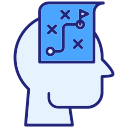Attention Hygiene in a Digital World
Context switching taxes working memory and scatters fragile traces. Set a timer, close stray tabs, and focus on one slice of learning. Jordan’s test scores rose after adopting thirty minute single task blocks. Try it today and report your crispest moment of clarity to the group.
Attention Hygiene in a Digital World
Create device free zones like the dining table or first hour after waking. This preserves quiet attention for encoding new material. If mornings are tough, start with fifteen minutes. Share your chosen island and the first thing you noticed changing in your short term memory.


